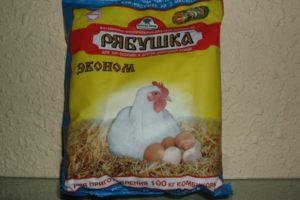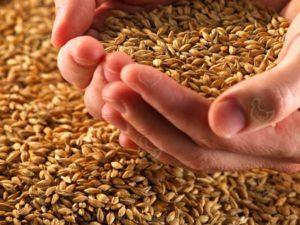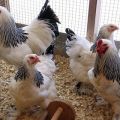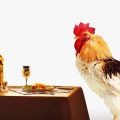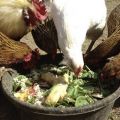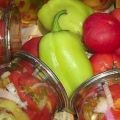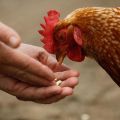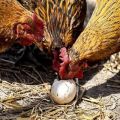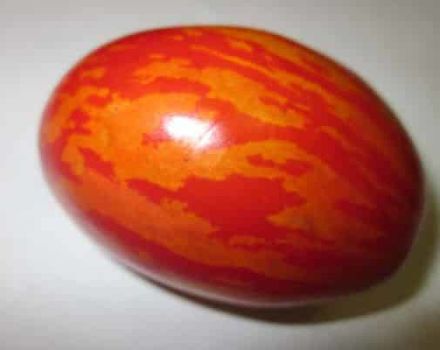Is it possible and how to properly give salt to chickens, when it is impossible to add to the diet
Every farmer knows that the diet of poultry must contain mineral components. But many poultry farmers question whether it is okay to give chickens and chickens salt. This mineral consists of sodium, which is good for birds, and harmful chlorine. Therefore, salt should be added to the feed carefully, observing the dosage, and in certain cases it is better to refuse to use the additive.
Does chicken need salt?
Salt is a mineral, and mineral elements must be present in the diet of birds. They have a positive effect not only on the physical condition of chickens, but also on bone tissue, metabolism, and the work of internal organs. Mineral Supplemented Chicken Produces More Eggs.
Salt should be given to chicks. Without this additive, young animals develop cannibalism, chickens begin to peck each other to deep wounds in order to get to the salty blood.
If a poultry farmer grows chickens without a run or with a rare walk, does not use compound feed with a salt content, then he should give the mineral element regularly.
What's the use?
Without sodium chloride, the body of chickens cannot function fully. The additive is necessary for:
- maintaining water-salt balance;
- disinfection inside the body;
- destruction of pathogenic intestinal microflora.
Sodium deficiency causes disturbances in the functioning of the heart muscle and other muscle structures, negatively affects the functionality of the digestive system. Layers are given a sodium supplement to increase egg production.
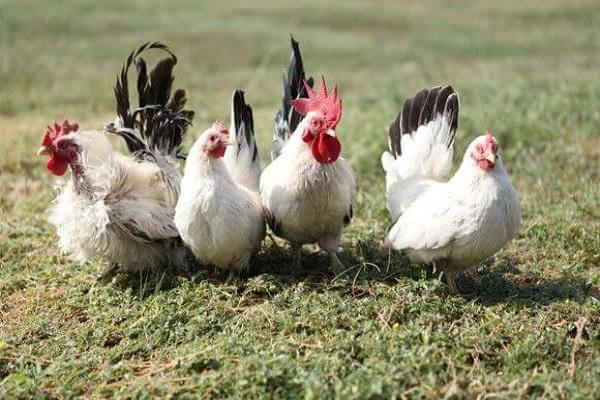
Is there any harm?
Salt can harm chickens if it is excessively included in the diet. The result is severe intoxication, which is fatal in most cases. Moreover, death occurs in a short time - about 10 hours. And the increase in symptoms of intoxication is noted within 3-4 days after consuming an excess amount of the mineral.
The lethal dose for an adult is 4 grams per 1 kg of body weight. Poisoning is detected by the following symptoms:
- strong thirst - the bird often drinks water;
- agitated behavior;
- the release of vomit;
- rapid but heavy breathing;
- redness or blue discoloration of the skin;
- violation of motor ability, staggering and falling of the bird when walking.
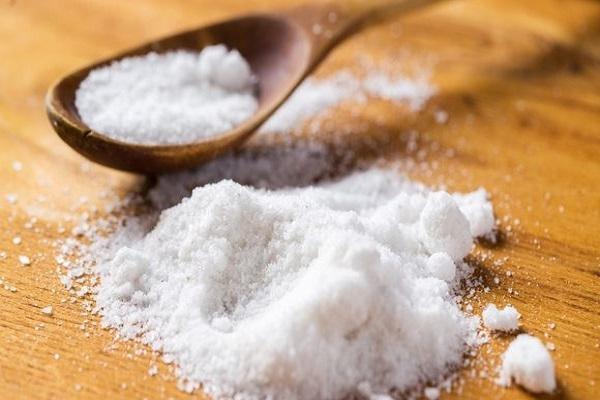
The dying state is accompanied by convulsions.
If the listed symptoms appear, and it is likely that the chickens have eaten an excess amount of salt, then immediate resuscitation measures are required. First of all, the chickens need to be given a large amount of water, and not pour it into the drinker, but make sure that the pets drink everything.If the chickens are in such poor condition that they cannot drink, then they will have to give them water by force: open their beak with your fingers and pour the liquid into their mouth with a syringe.
After soldering, some farmers give sick chickens vodka or vegetable oil in a volume of 10 ml per individual. But about this method of treatment, you should talk to your veterinarian.
To restore the body, chickens are given a decoction of flaxseed, a glucose solution. It is also recommended to lower the sick bird into a basin of cold water.
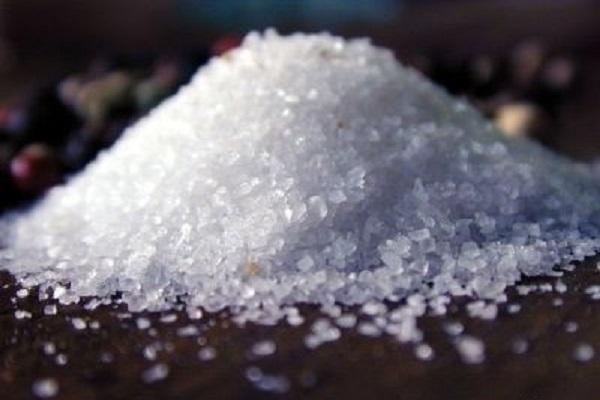
Feeding rules
Adding salt to the diet of chickens should be extremely careful. The daily amount of mineral added to adult chicken feed should not exceed 1% of the total dry mass of cooked food. If the rate is determined based on the weight of the bird's body, then one adult should not consume more than 1.5 grams of salt per day.
The mineral component is usually added to liquid mash where it dissolves. To make it easier to estimate the optimal dosage for the livestock, below is an approximate summer menu for a day for one individual:
- grain - 50 g;
- fresh herbs - 50 g;
- flour mass - 50 g;
- bone meal - 2 g;
- meat - 15 g;
- crushed shell rock - 5 g;
- salt - 0.5 g
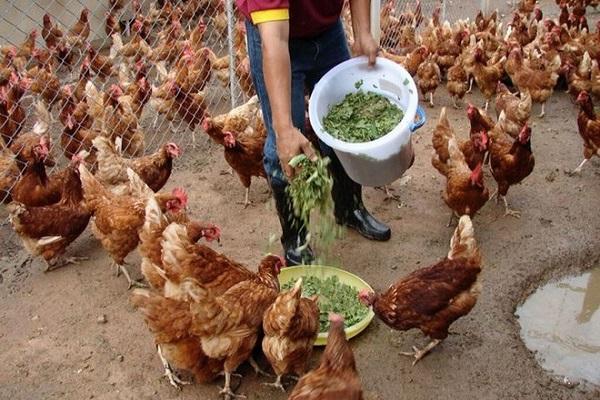
A diet that helps to increase the egg production of chickens in the winter months can be as follows:
- grain - 50 g;
- boiled potatoes - 100 g;
- liquid mash - 30 g;
- sunflower cake - 8 g;
- fermented milk products - 100 g;
- herbal flour - 10 g;
- bone meal - 2 g;
- crushed chalk - 3 g;
- salt - 0.5 g
The chickens are given finely ground salt. Add it to dry food in the amount of 1%. It is allowed to give the mineral from the 10th day of the life of the young. One young individual should receive no more than 0.05 g per day. When the chickens reach the age of 50 days, the daily dose can be increased to 0.1 g.
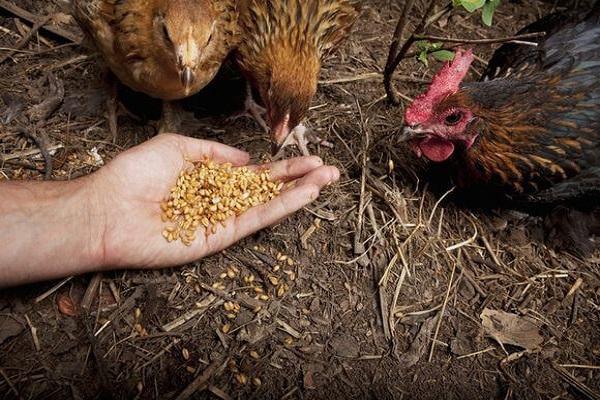
When is it not recommended to add salt?
Do not give salt:
- walking chickens;
- feeding on compound feed;
- broiler breeds (a special diet is prepared for them).
If the birds are free to run, salt is not needed as a food additive. Chickens are an omnivorous species, adapted to obtain pasture containing substances necessary for the bird's body.
Some poultry breeders do not feed them at all in the summer, when the chickens roam freely around the estate. And birds don't suffer from nutritional deficiencies.
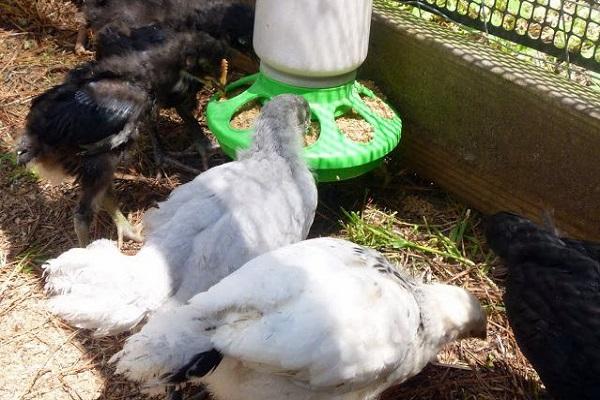
Chickens growing free, a large proportion of sodium chloride is obtained from the herbs used:
- plantain;
- clover;
- sorrel;
- dandelion.
Therefore, it is impossible to limit the use of fresh greens by chickens.
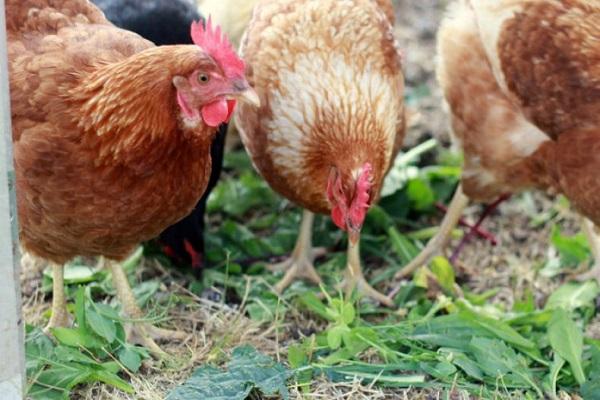
If the birds are kept without walking, but they consume mixed fodder with the inclusion of salt, then there is no need to additionally enrich the food with a mineral, otherwise there will be an excess. For the same reason, chickens should not be fed food intended for other farm animals, because the salt content in it is higher than the norm for the bird's body. You can only give a compound feed developed for poultry, in which the mineral component is optimal.
The farmer should remember that salt for chickens is not food, but only a food additive that should be given with extreme caution. If you have doubts about the concentration of a mineral in any product, then you should not put this food in the feeder. Otherwise, poultry farming will end in failure.
